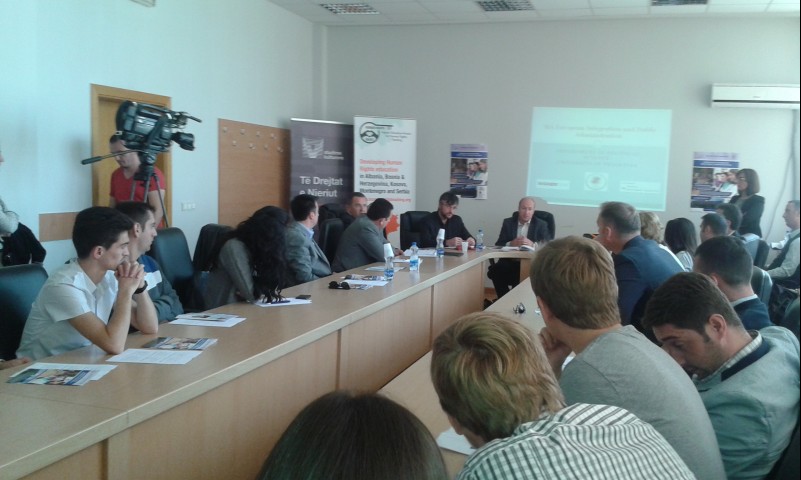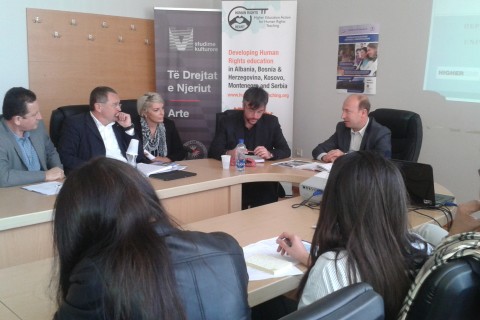Higher KOS: Master program developed within one fo the programmatic partnerships
Prishtina. On 2 October 2014, at the premises of the Faculty of Philosophy, took place the launch of the Master Program in European Integration and Public Administration. This Master Program is designed to be an interdisciplinary program, bringing together a broad range of courses, including political science, law and economics. The study program aims to increase the academic quality, mobility and the internationalization of the University of Prishtina, by offering all the courses in English language. The program is open to graduate students from all social sciences from accredited institutions from Kosovo, Western Balkan and Europe, primarily from the field of political science, law and economics.
The Master Program has been designed by the Department of Political Science of the University of Prishtina in collaboration with the University of Salzburg and the University of Pavia, a partnership which is supported by the Austrian Development Cooperation (ADC/ADA) through the Higher KOS Project, which is being implemented in Kosovo since December 2011.
The Program has been accredited by the Kosovo Accreditation Agency.
The Master Program focuses on enhancing and developing of the academic excellences, research competencies, critical thinking and analytical skills of students, on European Integration and Public Administration studies. The goal of the program is to develop and increase expertise needed for research and application of the studying relevant policy fields. Furthermore, it aims to provide preconditions for developing of competent experts and officials who are able to effectively contribute in the process of European integration as well as in the area of public administration. In addition to that, having an interdisciplinary approach, this program will provide the students with the opportunities to cultivate a more multidisciplinary and diverse knowledge in their study approach.
The study program is dedicated to all the students with different academic backgrounds such as: political science, law, economics, sociology, communication studies, social science and humanities in general.



